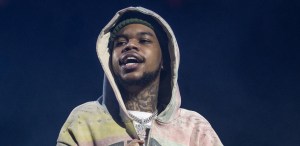While many Americans have received their one-time $1,200 economic impact payment, some have called for additional, ongoing aid to help sustain the economy. The issue-plagued ongoing stimulus rollout is part of the $2 trillion CARES Act, designed to help individuals and businesses stay afloat as the coronavirus crisis continues. However, some think longterm financial policies should be put in place, such as Universal Basic Income.
Universal Basic Income would guarantee a certain amount of revenue to every U.S. citizen every month. Some of that language is written into The Emergency Money for the People Act. The bill was introduced by earlier in April by Rep. Tim Ryan of Ohio and Rep. Ro Khanna of California. As it’s currently written, it would provide monthly cash payments from the federal government up to $2,000. These payments would be guaranteed for at least six months and would continue until employment levels return to pre-pandemic levels.
Videos by PopCulture.com
Despite previously supporting a second stimulus payment, President Donald Trump recently shifted focus to a payroll tax cut, which experts argue would be ineffective at creating an economic jump-start. Not to mention disproportionately favor those with larger incomes. Regardless, Universal Basic Income is still being discussed as a possibility in the halls of Congress as a means to aid both individuals as well as the economy.
By Definition

Universal Basic Income is a state-run directive that guarantees a certain amount of revenue paid to citizens in regular intervals. It’s existed for centuries, at least as a theory, though has only become a topic of conversation in recent months.
History

The theory of Universal Basic Income dates back to the 16th century, as depicted in Sir Thomas More’s 1516 social satire Utopia. It was floated again in the 18th century by American revolutionary Thomas Paine, among others. Several experiments with negative income taxation her done by the U.S. throughout the 1960s and 1970s. While it has been implemented in other parts of the world, the debate has only recently taken the spotlight again in the U.S.
Recent Proponents

Former Democratic candidate Andrew Yang made Universal Basic Income a central part of his campaign. While he was considered an outsider candidate, the issue resonated with a number of voters and has become a relevant topic of conversation in an economy wrecked by coronavirus.
Renewed Interest

In an interview with MSNBC on Monday, Speaker of the House Nancy Pelosi spoke about the possibility of Universal Basic Income as a means to help struggling Americans. “Others have suggested a minimum income, a guaranteed income for people,” Pelosi said. “Is that worthy of attention now? Perhaps so.”
The Emergency Money for the People Act

Introduced on April 14, the Emergency Money for the People Act would provide $2,000 for everyone 16 and over making less than $130,000 annually. Married couples earning under $260,000 a year would get at least $4,000 per month.
A Potential Emergnency

Now, as states begin to loosen restrictions put in place to help slow the spread, the call for Universal Basic Income, at least temporarily, has been renewed. “A one-time $1,200 check isn’t going to cut it,” Rep. Khanna said in a statement. “Americans need sustained cash infusions for the duration of this crisis in order to come out on the other side alive, healthy and ready to get back to work.”








